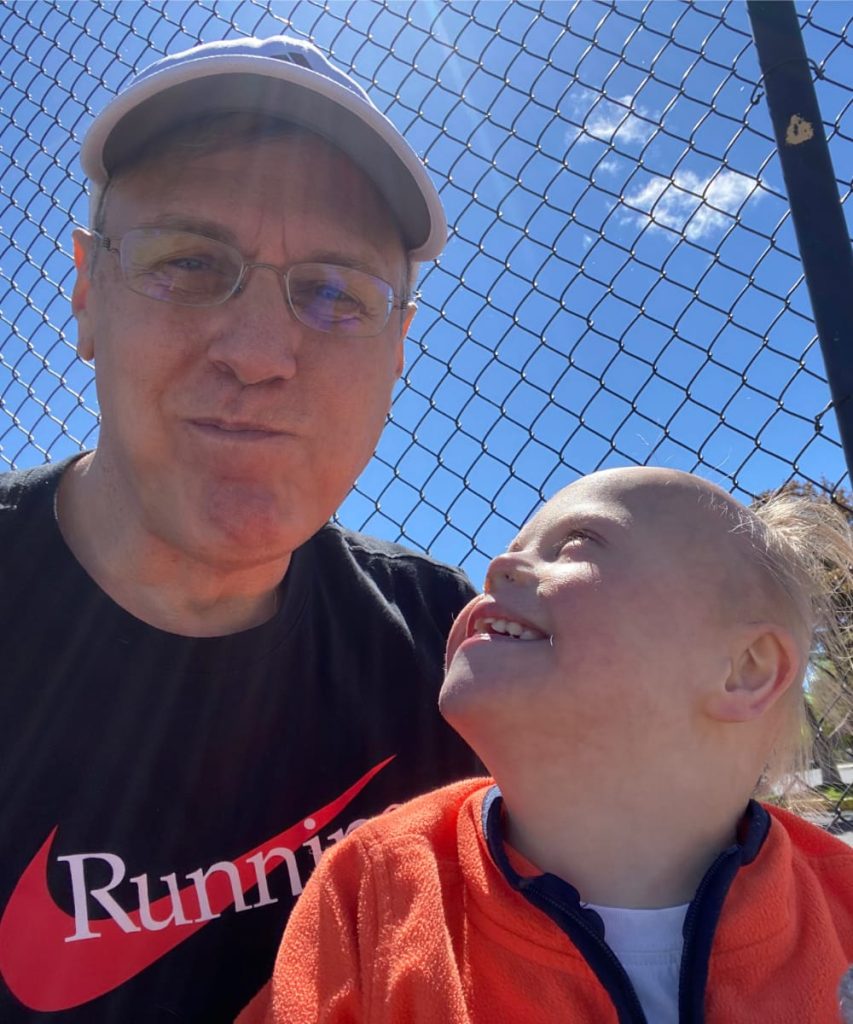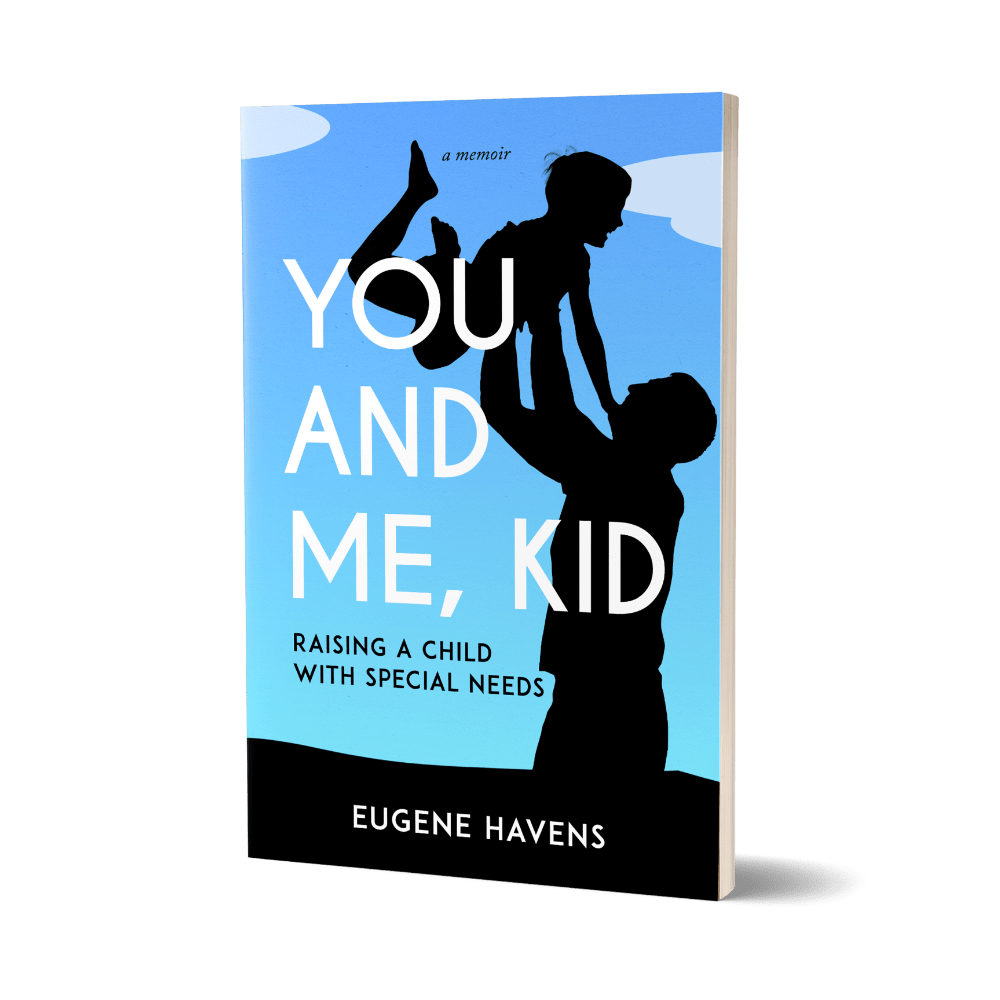
We shed a lot of unnecessary tears
When you find out your unborn baby has a birth defect, it’s never smooth sailing. In fact, it’s something you try not to think about until it happens. You expect that you might cry and even become depressed. You don’t expect that your doctor will cry.
When my wife’s obstetrician gave the news, she cried. “Your son has Down syndrome,” the obstetrician told Iris. She said the latest ultrasound of our baby was conclusive. There was a heart defect. There was a stomach defect. There were other tell-tale signs of Trisomy-21, the official term for Down syndrome. The medical problems could be corrected by surgery, the obstetrician said. The baby was most assuredly going to be born OK and have some extended time at the hospital after birth. My wife’s doctor said all of this through tears. Naturally, my wife cried as well. Our unnamed son was at 27 weeks gestation.
You don’t expect that your doctor will cry.
My wife returned home in a mysterious fashion. I had tried reaching her earlier by text. I didn’t know or possibly didn’t remember about the latest doctor’s appointment. I had wondered if I should throw something together for our son Julian to eat. At one year old, his feeding intervals were unknown to me except for “all of the time.” Mainly, I had expected Iris home by now and was checking in. Then I heard the front door. In some unspoken way, she and her father brought the feel of a funeral into the house. Iris’s father was with her, which seemed strange. It appeared Iris had called him first. I understood afterward the news was so devastating to Iris that she didn’t know how I would respond. She felt she needed her father’s moral support.
“Hey, how are you?” I said. “I tried texting you.”
“Give her a moment,” her father said. His reply to my fairly routine greeting and his dour look suggested I should already have known what they grappled with. My wife looked at the floor and told me, “It’s true. It’s Down syndrome.” I rose from the couch and embraced Iris. I hadn’t known her appointment was to discuss something so important.
Iris’s father hovered nearby. A Christian pastor who recently retired, he was practiced at navigating people’s private worlds. Iris often leaned on her father like a younger person in times of crisis. Iris was nearing forty years old. Her pregnancy, by virtue of her age, was labeled high risk. It had seemed an unfair term, but the label turned out to be medically accurate. There was a complication. “Can we have a minute?” I asked Iris’s father.
Her pregnancy, by virtue of her age, was labeled high risk.
He collected our son Julian and took him outside into the summer day. I led Iris to sit down. She relayed to me everything the obstetrician had told her, including the part about her doctor crying through the report of the ultrasound. Iris said this to indicate the seriousness of the situation. I couldn’t disagree. Several weeks earlier, they told us there were indicators for Down syndrome on the ultrasound. A high-risk specialist said the indicators could be false. They could clear themselves up. I had tossed and turned for a couple of nights and then put it out of my mind. Iris and I both had time to prepare for this definitive news as if one could do something to prepare. Now the diagnosis was here. Right then, I couldn’t find another way to look at it. The obstetrician had been brought to tears. It was difficult to see this news as anything but the end of the world.
Our local doctors put us in touch with the nearest pediatric hospital. Our son would need to be born there. It was a six-hour drive from our small town to the largest city in the state. We scheduled a day’s worth of appointments to meet with the specialists we would work with (for years, unknown to us at the time). We arrived at the big hospital like incoming freshmen visiting a college campus. Iris and I spent an entire day meeting with a dozen doctors in staggered interviews. There was the pediatric surgery team, the heart surgeon team, and the gastroenterologist. There was a Down syndrome specialist.
I noticed these doctors had a disposition quite opposite of Iris’s obstetrician back in our town. To the last one, the doctors were cheerful, warmly sharing their information with calmness and clarity. The head specialist of the Down syndrome clinic showed us a video. It featured kids and adults with Down syndrome doing various activities. One man was a bodybuilder and lifted heavy weights. Iris and I quietly wondered why this was germane to our son. Only later did we understand the inference. One of the issues with Down syndrome was low muscle tone. If someone with Down syndrome could become a bodybuilder, it was a message that our son could do much more than was expected.
We arrived at the big hospital like incoming freshmen visiting a college campus.
We left the hospital with our special needs pregnancy, scheduled to return months later when the baby was due. We felt better, admittedly, but overwhelmed by the various needs our son would have. Also, we felt uneasy. We couldn’t help but notice the different reactions to a special needs pregnancy within the medical community. My wife’s obstetrician was honestly sad over what could have been. I didn’t know much about doctors, but it appeared she was in the business of helping her patients deliver healthy babies. When a pregnancy was less than perfect, through the lens of perfection, it was cause for disappointment. Then there was the local doctor who specialized in high-risk pregnancy. He was used to seeing problems on the ultrasound. His reaction was measured, even philosophical. He talked to us about managing expectations and pacing ourselves. With me sitting there, he told Iris, “If your husband needs to drive off for a few days and collect his thoughts, that’s OK.” The comment struck me as dramatic, yet it came from a place of candor. I noticed it was the first acknowledgment of us as parents and not of our problematic pregnancy. Also, the specialist wasn’t having “the talk” with us about our options, a code word for termination.
You heard parents lament hearing termination advice from an authoritative doctor at an already difficult time for them. Some doctors would recommend termination as if it were a medical suggestion, not a speculative decision based on personal fears. Like our obstetrician, a high-risk pregnancy doctor appeared to see uncertainty as an enemy. They wanted parents to know they didn’t have to accept imperfection.
These specialists were an almost-heavenly alternative to the conflicted reactions of our local doctors.
Our specialist stopped short of making this suggestion. He seemed to know through our conversation it wasn’t a reality for us.
The smiling team at the children’s hospital was perhaps most confusing for an overwhelmed parent to process. These specialists were an almost-heavenly alternative to the conflicted reactions of our local doctors. They had first-hand knowledge of special needs. They worked with the kids. The subject wasn’t theoretical, discussed with a hint of doubt and fear. Specialists at the children’s hospital treated it as a health challenge. Their business was to get sick kids well. They wouldn’t recommend termination as a matter of course. Their business model was to save kids from their maladies. Parents from all over the world sought out this hospital. They would help you.
Much time has passed for us since those prenatal meetings. For almost six years, I’ve helped to shepherd my son Percy through the medical system. From this seasoned place, I can better understand the various reactions we received about the diagnosis. My biggest question is why we cried over the news. A birth defect was treated by our initial doctors, in some ways, like a fatal medical crisis. When the news is delivered, “it’s cancer,” there are tears and a mournful sadness. Clearly, cancer has no upside. Getting rid of it is the goal. Also, everyone expects you to fight cancer, to beat the problem. It’s why your specialist doesn’t cry over your cancer diagnosis. There would be no point. You can’t do anything but move forward. Doctors know cancer is a real possibility for people as life goes on. It isn’t a tragedy, but a disease fought rationally, systemically. It’s part of life.
We found this mentality is not always followed with a special needs diagnosis. A doctor will see your prenatal diagnosis as an aberration, something to be avoided. “You can try again.”
My biggest question is why we cried over the news.
To meet our son who has Down syndrome, the last thing you would do is cry. You would smile like he smiles. That we ever mourned over his condition is, five years later, nonsensical, even childish. We followed the cues of our local doctors, whom we trusted. They followed an instinct that said a special-needs life is too much of a burden to celebrate like a regular birth. They treated the news of Down syndrome like it was a terminal disease.
It would explain the super-happy demeanor of the children’s hospital specialists. They knew many parents came to them, having heard the worst. To overcome the negativity of the general medical establishment, these pediatric specialists went the other way. They acted as cheerleaders for us to regain our confidence. Their presentation was so uniformly positive that we left feeling a little paranoid. “Our situation must be pretty bad if they’re being so happy.” Too much positivity was strangely a turn-off right at the beginning. More than happiness, we wanted hope.
Our son is a healthy, happy boy of five. He has developmental challenges due to his Trisomy-21. There are difficulties. In a perfect world, the obstetrician would have taken our son’s diagnosis in stride. Down syndrome makes our son unique in many wonderful ways. We could have anticipated his differences with hope, not tears. Medical professionals who deal with these things could have shown us how to more quickly embrace the diagnosis. Instead, we found ourselves in the delivery room months later, still uncertain and uneasy. The mixed signals we were given at the start stayed with us.
From our initial experience with special needs, we saw a reality about the medical community that people don’t like to dwell on. Doctors are imperfect like the rest of us. When they believe in the pursuit of health above all else, they don’t allow for other outcomes. A special needs diagnosis isn’t a terminal illness. It’s a sign of the imperfect life all humans live. Perhaps if doctors were more comfortable with their own imperfections, they wouldn’t take a special needs diagnosis so hard. They wouldn’t give off signals that it’s hopeless. Doctors wouldn’t need to overwhelm parents with bad or good emotions and instead speak about the facts of the situation, the scientific reality.
A special needs diagnosis isn’t a terminal illness. It’s a sign of the imperfect life all humans live.
Back in the day, a doctor’s demeanor was factual and, when necessary, emotionless. It could also mean stiff and non-relatable, the lab coat syndrome. Doctors became more friendly as a result. Now, doctors cry over our medical problems. If a special needs pregnancy could be handled with an old-fashioned doctor’s demeanor, parents could view their children more clearly. In a very basic way, a special needs diagnosis means our children will face the first of many setbacks in their lives a little early. Our kids are no different. They’ll live an imperfect human life just like everyone else, the bad and good.
If a child is alive, the good will always outweigh the bad. It’s a secret of life that we’ve been overjoyed to see affirmed.


